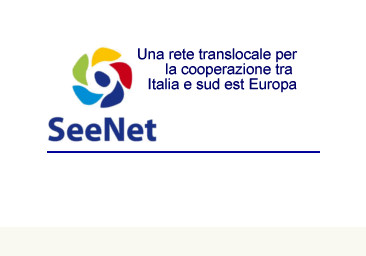SeeNet II
Start date: 01/01/2011
End date: 31/12/2013
Funder: Unione europea
Operational unit: OBC Transeuropa

In 2013, OBC concluded the three-year decentralised cooperation programme “SeeNet II - a transnational network for cooperation between Italy and South-East Europe”, co-funded by the Italian Ministry for Foreign Affairs, 6 Italian regions and the Autonomous Province of Trento.
During the action, OBC regularly carried out in-depth analyses and spread information on the socio-political contexts in South-Eastern Europe and on the thematic areas covered by the programme, working with the main actors of the Italian decentralised cooperation and 47 local authorities in the Western Balkans.



